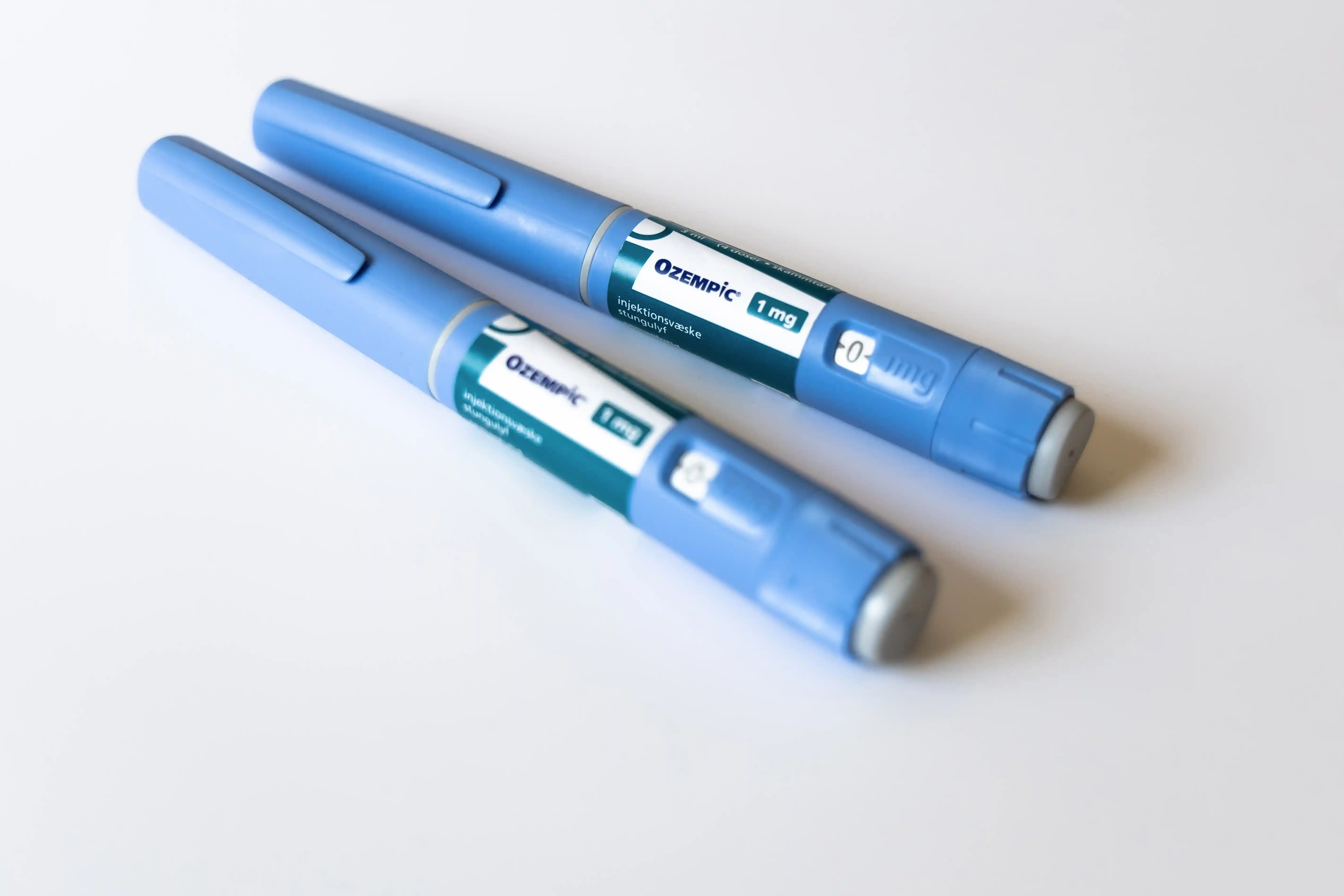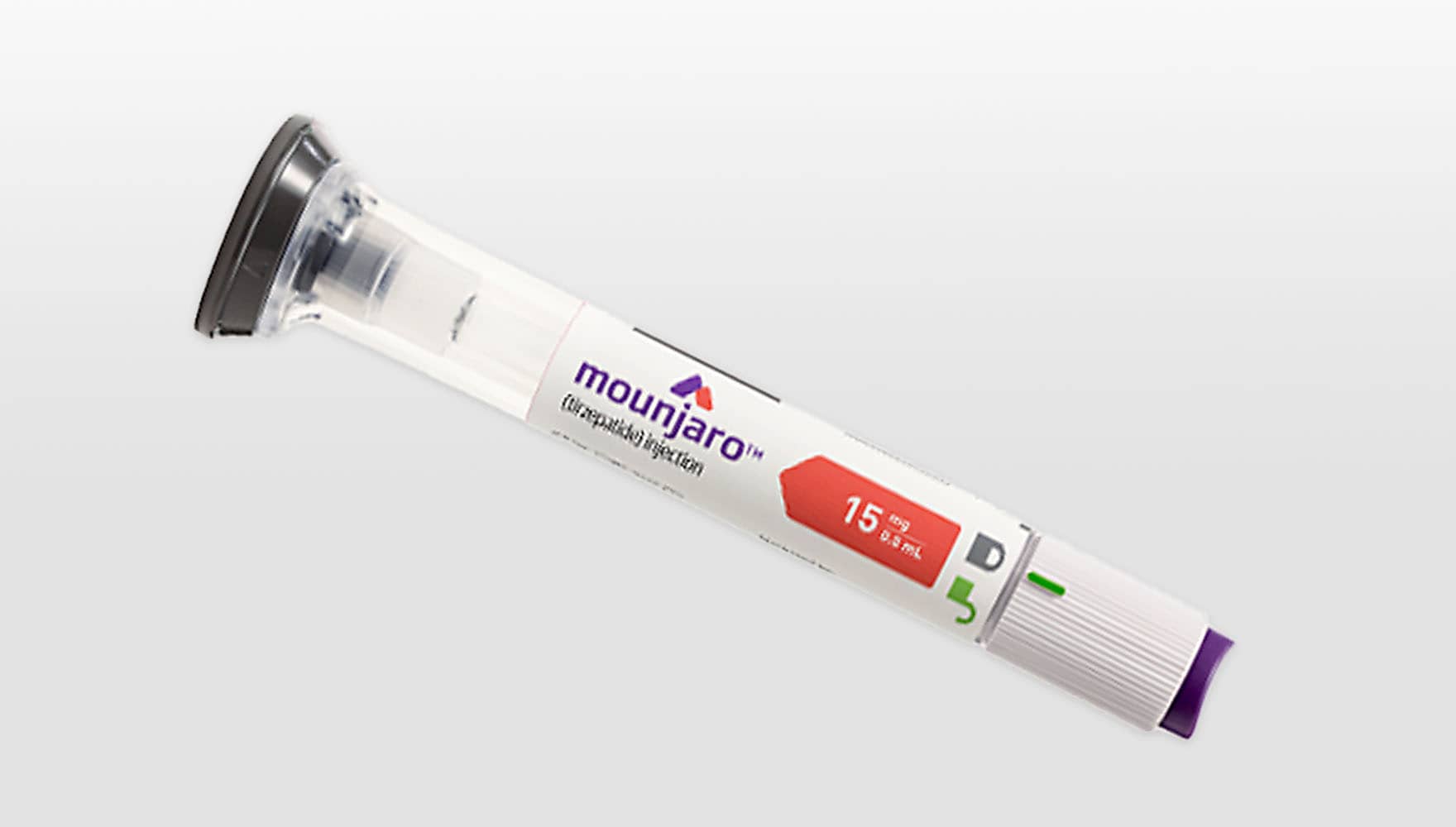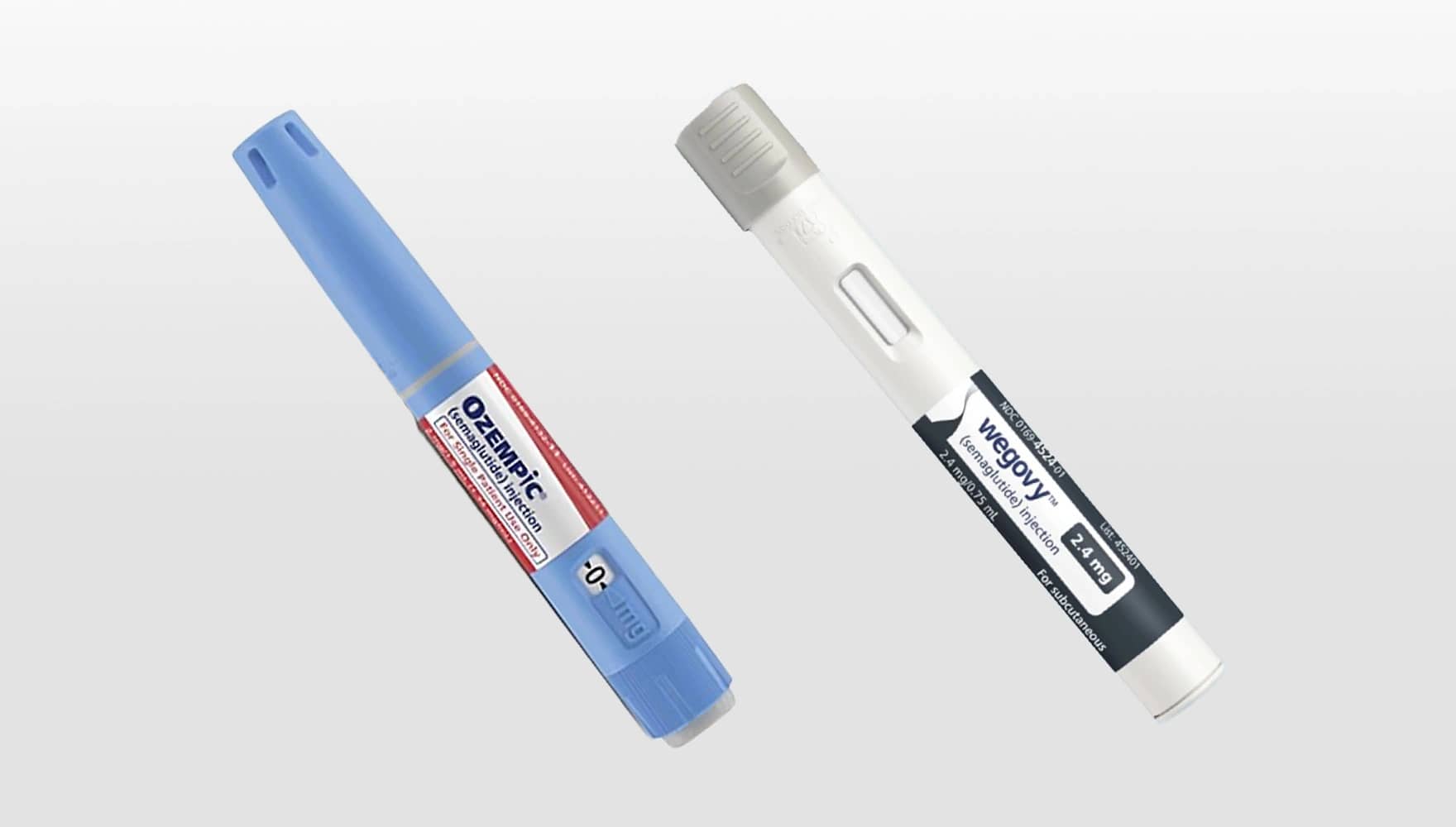When looking to start your weight loss journey, most experts agree that a combination of lifestyle changes such as diet and exercise is recommended. However, these changes alone may not be enough, and can be incredibly frustrating and challenging to manage. In more recent years, many prescription medications and weight loss drugs have become more well-known for their role in weight loss; Generally speaking, Most prescription weight-loss drugs work by decreasing appetite, promoting feelings of fullness, and interfering with fat absorption. This can help decrease caloric intake and aid in the process of decreasing body weight.
The majority of these medications have been used to treat diabetes, but come with the additional benefit of managing weight and body mass index (BMI). When it comes to weight loss medications, there are several to choose from; In this blog, we'll explore several popular weight loss drugs, such as Ozempic, Wegovy, Contrave, and others, to help you understand the benefits, side effects, and which one may be suitable for you on your journey to lose weight.
With any weight loss medicine, it is very important to talk to your health care provider about side effects. Talk to yours about any side effect that bothers you or doesn't go away.
Injectable Prescription Medications
Ozempic (Semaglutide)
Overview:
Ozempic is currently one of the most popular weight loss medications in Canada, popularized in news headlines and social media feeds for being a top weight loss aid with celebrities. Ozempic is a GLP-1 receptor agonist, and is primarily used to treat adults with type 2 diabetes. It has been proven to help patients lose weight and decrease their body mass index (BMI). It is once-weekly subcutaneous injection.
Benefits:
- Helps improve blood sugar levels, which aids in patients losing excess weight.
- Improves high blood pressure and cholesterol levels
- Slows down food leaving your stomach, promoting feelings of fullness for prolonged periods of time.
Side effects:
Some may experience side effects such as:
- Nausea
- Diarrhea
- Abdominal pain
- Vomiting
- Constipation
Should you consider Ozempic?
Ozempic could be right for you if you have type 2 diabetes, and you're looking to improve your blood sugar and reach your A1C goal.
Speak to a health care provider to determine if Ozempic is right for you.
Wegovy (Semaglutide)
Overview:
While having the same key ingredient as Ozempic, Wegovy is a prescription medicine used with a reduced calorie diet and increased physical activity. It is once-weekly subcutaneous injection.
Benefits:
- Reduces risk of cardiovascular events
- Helps improve blood sugar levels, leading to weight loss.
- Improves high blood pressure and cholesterol levels
Side effects:
Some users of Wegovy may experience side effects such as:
- Nausea
- Diarrhea
- Abdominal pain
- Vomiting
- Constipation
- Decreased appetite
Should you consider Wegovy?
Wegovy could be right for you if you are an adult with a BMI of 30 or higher, or have a body mass index of 27 or higher with weight-related issues such as type 2 diabetes or hypertension.
Speak to a health care provider to determine if Wegovy is right for you.
Saxenda (Liraglutide)
Overview:
Saxenda is a GLP-1 receptor agonist, and acts in multiple ways to influence blood sugar control in diabetes, and weight management. It is once-weekly subcutaneous injection. Saxenda complements a balanced diet and exercise to foster weight loss.
Benefits:
- Regulates appetite, leading to a reduced calorie diet and weight loss.
- Approved for long-term use
Side effects:
Some users of Wegovy may experience side effects such as:
- Nausea
- Diarrhea
- Stomach pain
- Vomiting
- Constipation
- Potential for low blood sugar (hypoglycemia) in combination with other diabetes medications
Should you consider Saxenda?
Saxenda is appropriate for adults with a BMI of 30 or higher, or a BMI of 27 or higher with weight-related conditions such as hypertension or high cholesterol.
Speak to a health care provider to determine if Saxenda is right for you.
Mounjaro (Tirzepatide)
Overview:
Mounjaro uniquely targets two key digestive hormones: GLP-1, which lowers blood sugar levels after meals and helps curb appetite, and GIP, which encourages your body to release insulin more controlled. It is used in adults with type 2 diabetes and has been clinically shown to reduce excess weight in adults.
Benefits:
- Aids in regulating blood sugar
- Regulates appetite, leading to a reduced calorie diet and weight loss.
Side effects:
Some may experience side effects such as:
- Diarrhea
- Appetite changes
- Vomiting
- Constipation
- Indigestion
- Abdominal discomfort
Should you consider Mounjaro?
Mounjaro could be right for you if you are an adult with type 2 diabetes, looking to lose weight and manage glycemic levels.
Zepbound (Tirzepatide)
Overview:
Zepbound uniquely targets two key digestive hormones: GLP-1, which lowers blood sugar levels after meals and helps curb appetite, and GIP, which encourages your body to release insulin more controlled.
* Zepbound is pending approval from Health Canada.
Benefits:
- Is approved for long-term treatment
- Reduces the risk of heart attack, stroke or death in adults with Type 2 diabetes
- Regulates appetite, leading individuals to lose weight with a reduced calorie diet.
Side effects:
Some may experience side effects such as:
- Nausea
- Vomiting
- Diarrhea
- Constipation
- Stomach pain
- Indigestion
Should you consider Zepbound?
Zepbound is ideal for individuals who need weight loss support and may benefit from a dual-action approach.
Oral Weight Loss Drugs
Rybelsus (Oral Semaglutide)
Overview:
Rybelsus is not primarily used for weight management, though can aid in the process. Rybelsus is the first oral GLP-1 receptor on the market that comes in tablet form, and is primarily used in adults with type 2 diabetes. Rybelsus is taken orally once a day.
Benefits:
- Lowers blood sugar levels and A1C
- Slows digestion, which aids in patients feeling fuller for longer and losing weight
Side effects:
Some may experience side effects such as:
- Nausea
- Diarrhea
- Decreased appetite
- Vomiting
- Gas/ bloating
- Headaches
- Dizziness
Some more serious side effects that require immediate medical attention include pancreatitis, gallbladder problems, kidney problems, and allergic reactions.
Should you consider Rybelsus?
Rybelsus could be right for those who prefer oral medication over injections and need to manage type 2 diabetes while losing weight.
Contrave (Naltrexone-Bupropion)
Overview:
Contrave combines two medications, Naltrexone and Bupropion. Contrave targets the areas of the brain that regulate hunger and satisfaction by:
Cutting down eating pleasure with Naltrexone
Lowering hunger and making you feel fuller for longer with Bupropion
Benefits:
Aids in reducing hunger and controlling cravings, therefore being a helpful aid to lose weight
Easy to take orally, vs. other weight loss drugs being taken through injection
Side effects:
Some may experience side effects such as:
- Nausea
- Headaches
- Constipation
- Dry mouth
- Dizziness
- Trouble sleeping
- Higher blood pressure and heart rate
- Anxiety and mood shifts
Some more serious side effects that require immediate medical attention include pancreatitis, gallbladder problems, kidney problems, and allergic reactions.
Should you consider Rybelsus?
If you struggle with injectable medications, Contrave can be a great alternative taken in pill form. Contrave could be right for you if you are an adult with a BMI of 30 or higher, or a BMI of 27 or higher with a history of health issues related to excess weight.
It can also be right for you if you struggle with emotional eating and/or food cravings. Speak to a health care provider to determine if Contrave is right for you.
Who shouldn't take weight loss medications?
While each medication varies and should be consulted individually, the following are the most common individuals who are not suited to take weight loss drugs:
- Pregnant or breastfeeding women, without prior consultation with a healthcare provider
- Individuals with type 1 diabetes or diabetic ketoacidosis
- Those with a history of pancreatitis
- Those susceptible to seizures
- Individuals with a personal or family history of medullary thyroid carcinoma or Multiple Endocrine Neoplasia syndrome type 2 (MEN 2).
- People with a personal or family history of thyroid cancer or genetic conditions predisposing to thyroid cancer
- Anyone with known allergies to the active ingredient
How do I choose the right weight loss drug?
Choosing the right medications to lose weight depends on various factors including your overall health, weight loss goals, lifestyle preferences, and any underlying medical conditions. Consider these areas to make an informed decision:
- Consult with a Medical Professional: Your doctor can provide personalized advice based on your health profile and medical history.
- Consider Your Preferences: Decide whether you prefer oral medication or injections, and how frequently you're willing to take them.
- Evaluate Side Effects: Be aware of potential side effects and how they might impact your daily life.
- Assess Your Weight Loss Goals: Some medications may offer more significant weight loss, but might come with more side effects. Balance your goals with the potential risks.
- Check for Insurance Coverage: Some medications can be expensive. Ensure that your chosen medication is covered by your insurance plan, or explore patient assistance programs.
Conclusion
Medications to lose weight can be a powerful tool in your weight loss journey, helping you achieve and maintain a healthier weight. By understanding the options available and working closely with your healthcare provider, you can find the medication that best suits your needs and lifestyle, setting you on the path to success.














































